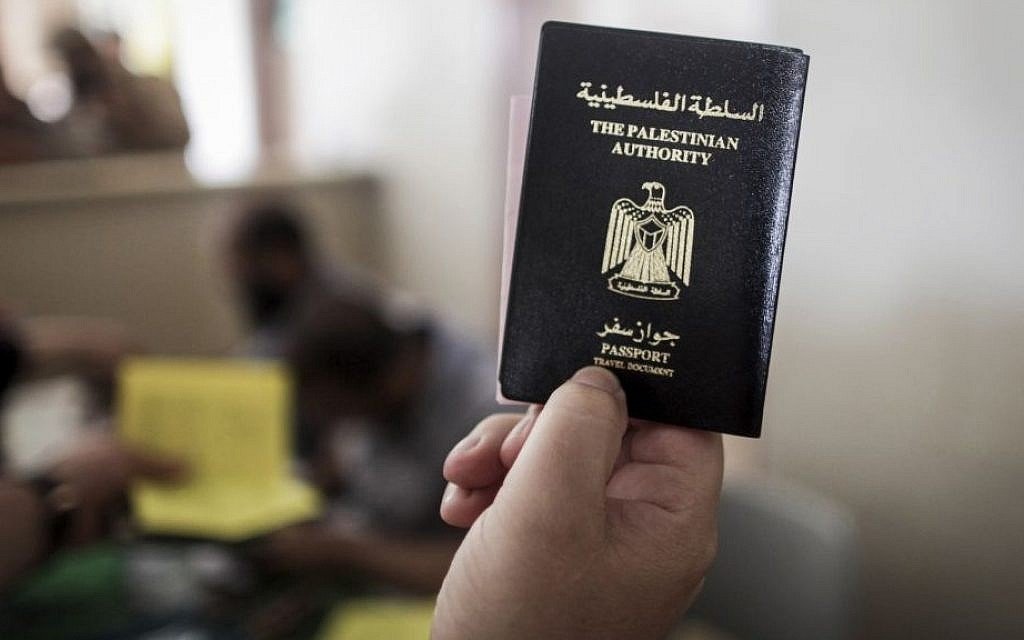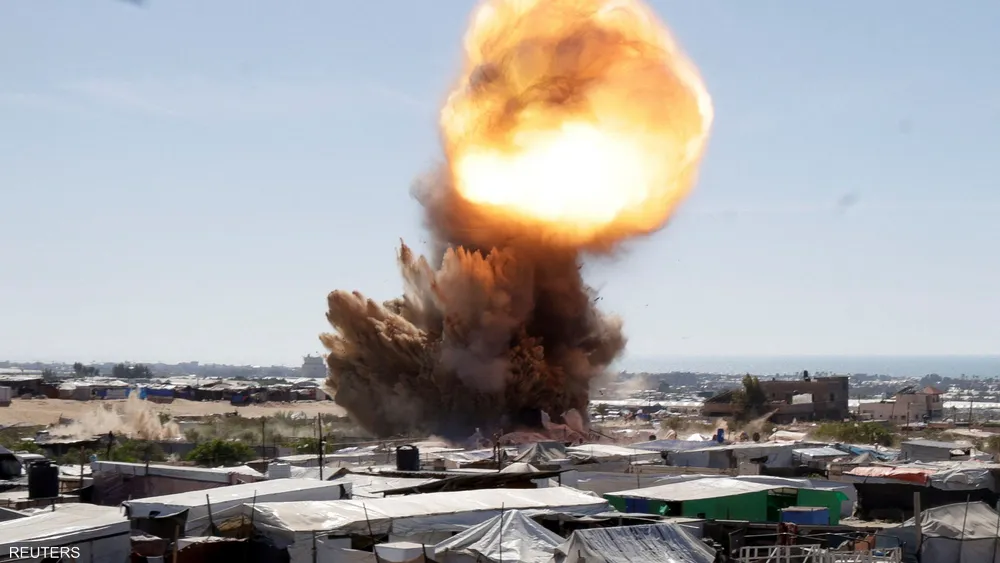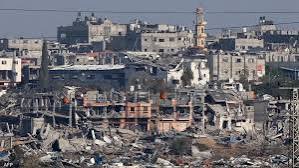“A wedding postponed to the sky” — Hala Asfour bids farewell to fiancé Mohamed Salama days before their wedding
Al-Khamisa News Network - Gaza

Hala Asfour bids farewell to her fiancé Mohammad Salameh.. Tales in Wartime Produced by: Sahar Dehliz
In Gaza, lovers are not led to celebration — they are led to absence.
There, the lines of love and death cross on the same map, and the great stories are written with tears and blood.
August 31, 2025 was not an ordinary date in journalist Hala Asfour’s life; it was a date carved between a postponed dream and a persistent pain.
She was meant to be a bride preparing to wear white, but she wore mourning instead; instead of wedding ululation she received condolences, and instead of being given to Mohammad, Mohammad was sent up to the sky.
An elegy for a grieving heart
“I do not know how my eyelid will close tonight…”
Thus Hala Asfour began her elegy for her fiancé and soulmate, photojournalist journalist Mohammad Salameh, who was killed a few days before their expected wedding.
Everything was ready for celebration amid war, even the white dress and their photo on the wedding invitation, but the occupation decided to steal the final moment and turn the wedding of a lifetime into a funeral.
Mohammad, who did not part from his camera until the last moment, was martyred while documenting Gaza’s suffering, with love for Hala in his heart and a future they had dreamed of despite everything.
Hala had written him short messages full of hope, small dreams of one day returning to a warm home filled with laughter not shelling, where their children would be born, not martyrs.
Hala says:
“He left me but did not leave me. He left in my heart a wedding crowned with loss, and a marriage into sorrow.”
With those words she summed up the pain of all of Gaza, where love is left unfulfilled, joy is not granted, and life is lived only on the edge of death.
“Love in wartime… a wedding crowned with loss”
Journalist friend Waad Abu Zaher did not know the photojournalist Mohammad Salameh, nicknamed “the dark-skinned,” before, but war — like love — does what no one expects.
She saw him for the first time carrying his morning cup of coffee and knocking on their room at the “Palestinians” organization. Accompanied by his fiancée Hala, he would bring her “Asfour milk” every morning if she wanted, and his devoted heart if she wanted more.
One day, journalist friend Waad spontaneously asked Hala a question:
“Why does love insist on itself during war?”
Hala laughed at first in irony and said:
“Because we are feeling people.”
Then, in a voice more wounded, she whispered:
“If there is nothing to save us from death, then let love save us from life, my friend,” but death in Gaza does not wait long.
A postponed wedding… and in Gaza departures do not wait
Journalist friend Amr Tabsh, in a painful tribute to his martyred friend Mohammad Salameh, whose soul was taken moments before his anticipated joy with his fiancée Hala Asfour, wrote:
“Mohammad was supposed to be presented as a groom today; ululation should have filled the place; we should have offered them words of love, not tears of farewell… but in Gaza, even joy is bombed before it is born.“
Mohammad was not just a journalist; he was a kind spirit, a light-hearted soul, and a lover of life despite its burdens.
Those who knew him as a colleague say he never tired, carrying his camera as if it were part of his heart, photographing pain without breaking, laughing despite the devastation, and loving despite the presence of death.
Hala Asfour bids farewell to her fiancé Mohammad Salameh
You left, Mohammad, before the story could be completed… leaving Hala to wear sorrow instead of a white dress and to wait for the absent instead of greeting well-wishers. You left, and your image remained in our hearts — a martyr of word and love.
In Gaza, nothing is exempt from loss; even love is slaughtered on the thresholds of war. But you, Mohammad, will remain a groom — in the sky, in paradise, in the memory of those who loved you and could not bid you the farewell you deserve.”
In this besieged city, love does not die; it is killed. Yet Hala, like many women of Gaza, did not break; she wrote her story on the walls of memory to bear witness that love was here and that the occupation did not kill the entire dream.









